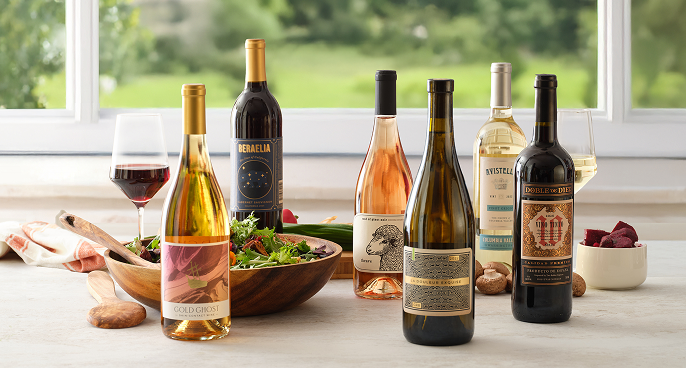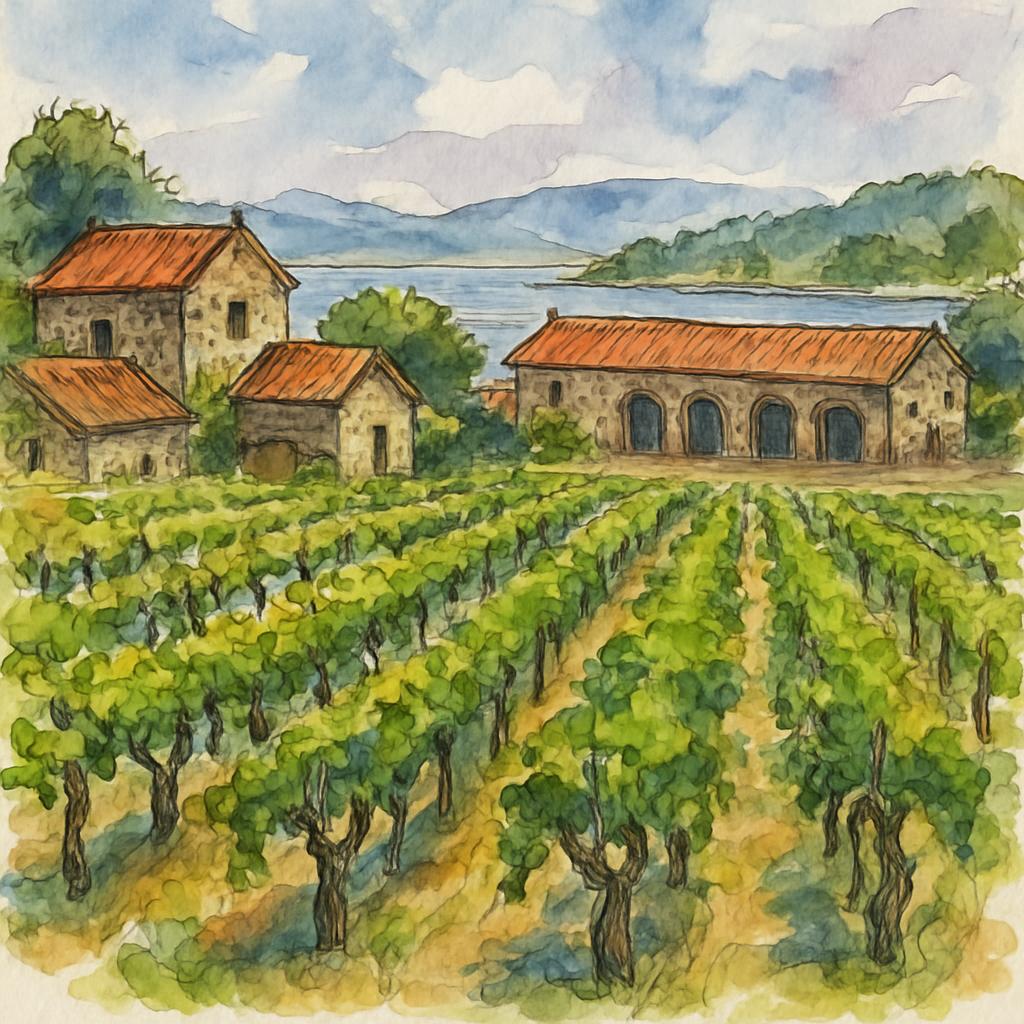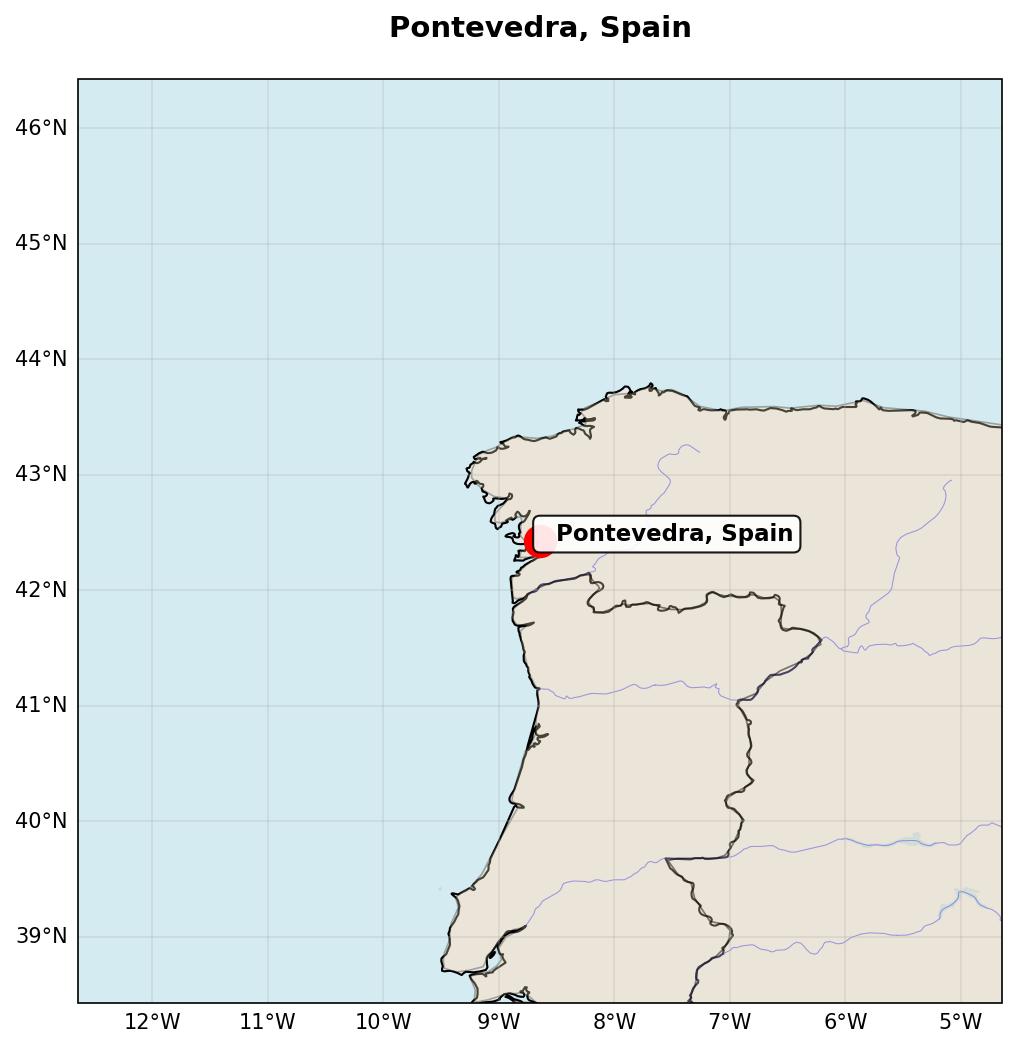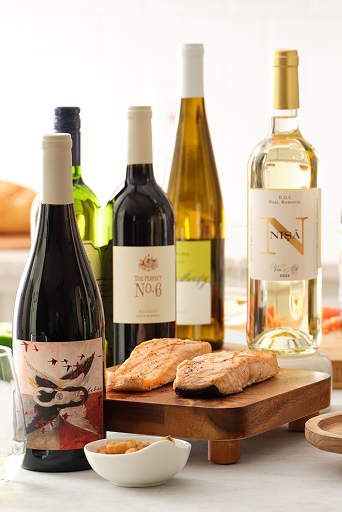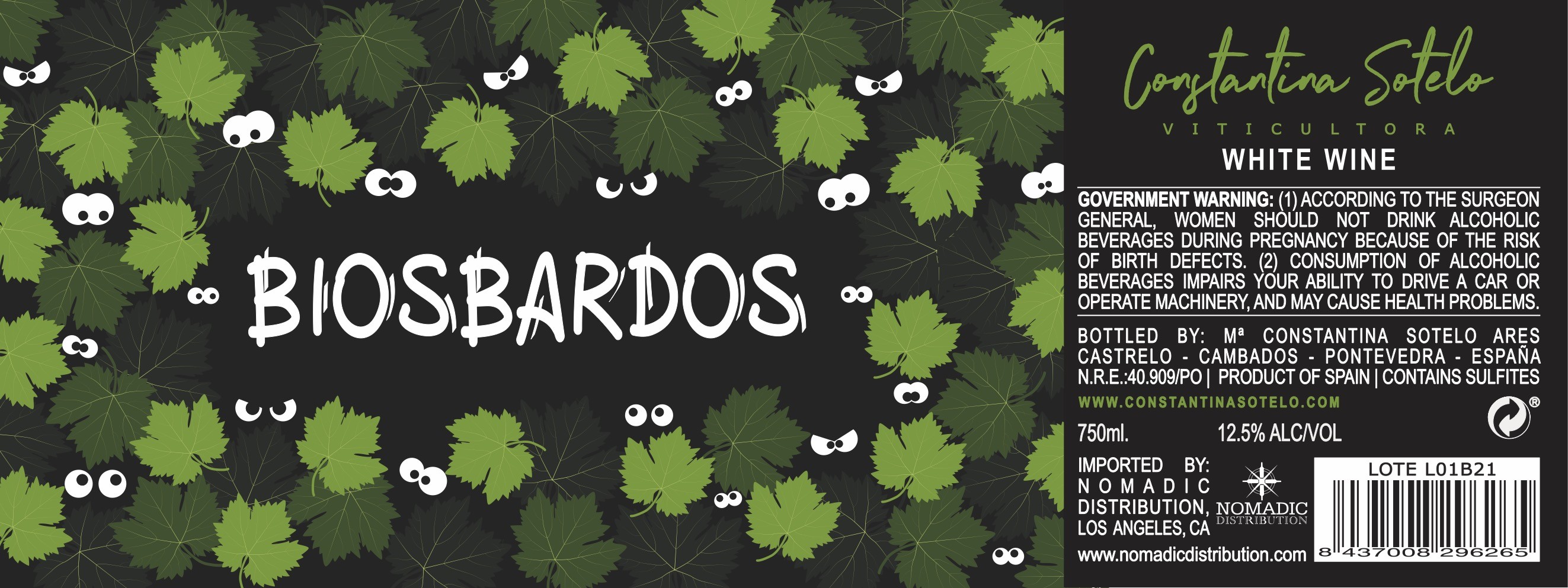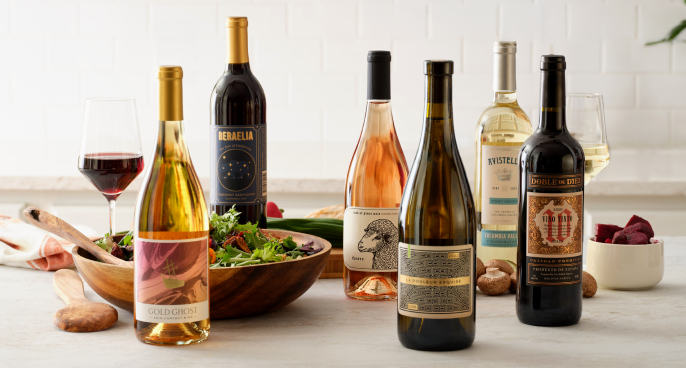Terroir of Pontevedra
Pontevedra's vineyards thrive in a cool, humid Atlantic climate that shapes the region's distinct wine profile. The ocean keeps temperatures mild, with winters that are not too cold and summers that rarely exceed the low 30s°C. This helps maintain the bright acidity that is a hallmark of the wines here.
Spring showers extend the growing season, while heavy fall rains make disease management important. Vineyard managers use airy canopies and traditional pergola training to improve airflow, ensuring healthy grapes.
The soils in Pontevedra are mostly granitic, with sandy, acidic loams and quartz fragments adding finesse and minerality to the wines.
In the Val do Salnés and O Rosal subzones, schist and gneiss add complexity, while alluvial deposits in river valleys bring richness. This unique terroir, along with the climate, produces elegant, high-acid whites like Albariño, as well as aromatic reds and rosés with subtle mineral nuances.
Notable Wineries in Pontevedra
Pontevedra’s wine scene is a delightful mix of well-established estates, cooperatives, and creative boutique wineries. In Rías Baixas, you’ll find many renowned names clustered around Cambados and Meaño in the Salnés region, as well as along the slopes of O Rosal and Condado do Tea.
Some standout producers are Bodegas Martín Códax, a leading cooperative known for its consistent and approachable Albariño, and Adegas Granbazán, celebrated for producing high-quality Albariño, including varieties that age well and have barrel influences. Pazo de Señorans offers premium Albariño from older vines in a historic manor setting, while Bodegas Fillaboa creates both unoaked and oak-aged whites.
Terras Gauda is a key player in O Rosal, and Pazo de Rubianes is famous for its structured Albariño. Don’t miss Marqués de Vizhoja, a family-run winery by the Miño, or Viña Nora and Lagar de Pintos.
Rías Baixas is home to several hundred wineries, ranging from cooperatives to tiny micro-bodegas, many of which gain international acclaim for their expressive, maritime-influenced whites.
Sustainable Winemaking in Pontevedra
In Galicia's lush vineyards, sustainability is key, aligning with the region's eco-friendly traditions. Organic and biodynamic practices are common, with growers using cover crops to prevent erosion on granitic slopes and improve soil health. The challenge of high humidity is tackled with integrated pest management and careful fungicide use, while pergola training systems boost airflow.
In the cellar, energy efficiency is a priority, featuring advanced cooling systems and water recycling, along with a shift to renewable energy. Lightweight glass and local, recyclable packaging are standard, showing a commitment to reducing environmental impact. Producers often emphasize organic and vegan certifications, blending traditional farming with modern sustainability. This helps Pontevedra's winemakers keep the bright acidity and mineral flavors of their famous Albariño and other wines, while protecting the environment for future generations.
Wine Tourism in Pontevedra
The Rías Baixas Wine Route in Galicia is a prime example of advanced wine tourism. It connects wineries across five scenic subzones, offering a blend of coastal beauty and historic charm.
Visitors explore key locations like Cambados, known as the Albariño capital, and enjoy tastings in medieval towers and granite manor houses. The region's wineries, ranging from cooperatives to family-run establishments, often pair tastings with Galician seafood and cheeses.
Annual events such as the Festa do Albariño in Cambados highlight the region's vibrant culture. The area boasts a beautiful coastline and inland trails for cycling and walking, enhancing the wine tourism experience.
Many wineries provide scenic tasting rooms with estuary views and offer accommodations that feature farm-to-table cuisine paired with local wines. This immersive wine region blends coastal views with chilled Albariño, reflecting the rich cultural heritage of Galicia’s rías.

